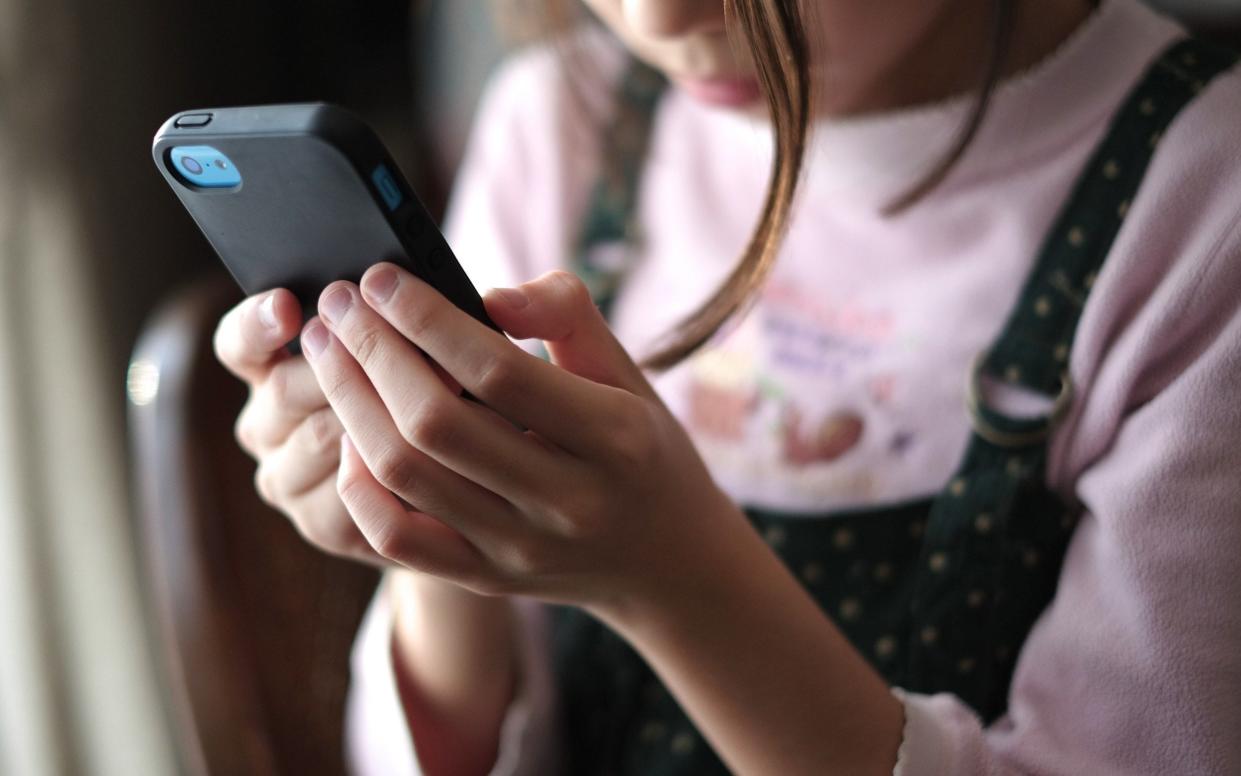I gave my 9-year-old a smartphone – here’s why

When Sarah Janes’ daughter asked her for a smartphone at the tender age of six, the mother-of-one from Bedford pushed back with some force. As an IT expert, she was well aware of a phone’s addictive qualities and the harmful impact the devices can have on a young person’s mood, sleeping patterns and brain development.
“Even adults have a hard time peeling themselves away from their phones, and I know from studies that [that problem applies to] children even more,” she says. “I also wanted her to be playing outside, getting fresh air and moving around, rather than being sedentary and staring at a screen.”
However, three years later, when her daughter was still only nine, Janes finally relented. Her change of heart came after her daughter started walking the short distance to school on her own. “We wanted to be able to contact her, have her be able to contact us and track her whereabouts too,” she explains.
There was also a significant amount of peer pressure. “All her friends were getting phones,” Janes adds.
She is not the only parent who has been battered into submission. A report, published on Friday, shows that the number of primary school pupils who own a smartphone has soared in the last year. Research by the technology regulator Ofcom found a quarter of children under seven now have their own phone – up from about a fifth last year – and 59 per cent of eight to 11-year-olds own the devices.
The survey also found that children were routinely bypassing age checks to access social media apps such as WhatsApp, TikTok and Instagram, despite the apps supposedly requiring a minimum age of 13.
Janes says there was a more innocent reason for her own daughter’s original request for a phone. “When she asked me for one aged six, I asked her why she wanted it and she said that she’d like to use it as an alarm clock ‘like you and Daddy do.’ She was right. I use mine as an alarm clock, diary, camera, calculator, shopping list and newspaper. A bit like how a child might dress up in their mum’s shoes and pretend to go to work, I think she wanted a phone to be like us and to show she was growing up.”
Janes admits her eventual decision to give her daughter a device followed “a lot of nagging”, but points out that the phone has a host of parental controls. “Her apps have to be approved by us, and she has time limits,” she says.
Nevertheless, Ofcom says its report should be a “wake up call” for the industry to do more to protect children. It follows the announcement of plans by the Government to ban under-16s from buying mobile phones and the publication of new guidelines, issued to schools in February, to help head teachers implement restrictions on the use of smartphones during the school day.
‘I hate them, but there’s no way back’
However, the issue of whether to give your child a phone isn’t always straightforward. When Emma separated from her husband in 2019, he decided to give their eldest daughter, who was eight at the time, her first smartphone so she could contact him. “Her younger sister then wanted one, which is how she ended up getting a smartphone aged five,” says Emma. “Her friends would tell her how lucky she was, but she wasn’t really.”
Emma says that what started out as a way for her daughters to speak to their father regularly, and practice their school spellings on a spelling app, soon led to them watching endless YouTube videos and, when their peers began getting their own phones “typically at eight or nine”, they began downloading apps such as TikTok and Snapchat. “Now they just scroll through videos on social media and call each other endlessly,” she says. “Their phones are the bane of my life and I hate them. But there’s no way back.”
This peer pressure is something that led the mother-of-two Daisy Greenwell and her friend Clare Fernyhough to launch the campaign Parents United for a Smartphone Free Childhood, which encourages parents to form class WhatsApp support groups where they all agree not to normalise giving very young children phones. The idea came to Daisy earlier this year when she was having coffee with a mother who was discussing getting her eight-year-old a smartphone.
“The Ofcom figures are pretty shocking, because phone use is only getting younger,” says Greenwell, who is pushing for social media apps to raise their age limit from 13 to 16. “But while it’s easy to say, ‘Look at these silly parents’, what we hear from our community of parents is they want clear guidance on smartphone use. But there is nothing from governments, nothing from the NHS, and so parents are finding their own way. It’s a systemic problem that needs a systemic solution. We can all see there’s a massive problem, and something needs to be done about it.”

 Yahoo News
Yahoo News 
